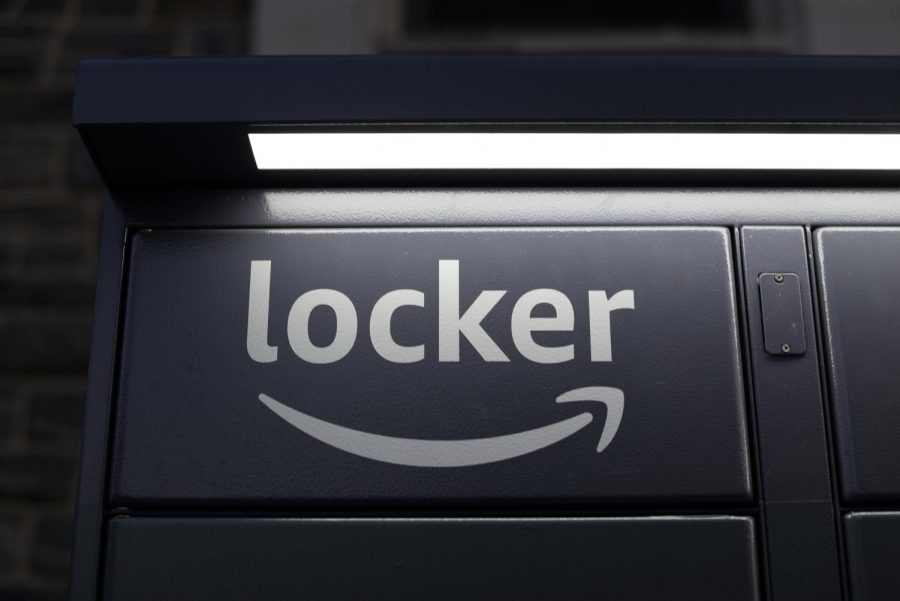Is Amazon’s Convenience Worth the Intrusion?
NIGEL ZWEIBROCK/THE OBSERVER
Amazon is known for its convenience and vast inventory, but it comes at a price.
February 6, 2019
When you are looking for groceries, new gadgets, school supplies or other miscellaneous items online, Amazon.com is the place to go. One of the largest companies in the United States, Fordham students order from this website every day.
Amazon is far more than just an online store. With a Prime account, customers get access to Prime Music and Video, special discounts at Whole Foods and everyone’s favorite: free two-day shipping. Amazon also offers other services like Amazon Fresh and Prime Grocery. Amazon Fresh is a grocery delivery and pick-up service available to Prime customers in select locations, while Prime Grocery is an option for Prime customers looking to receive packaged foods and toiletries by mail.
Although Amazon Prime comes at the rather steep annual cost of $119, the company offers a special discount for students — Prime Student costs only $59 annually, giving one all of the bells and whistles of a regular Prime membership for up to four years. All students have to do to become eligible is to obtain an Amazon account, attend a U.S. college and have an email ending in .edu. Despite these benefits, most students choose to continue to share an account with family if their family already has a Prime membership.
Jonah Underwood, Fordham College at Lincoln Center (FCLC) ’22, is a frequent Amazon customer and shares an account with his family. He orders from Prime on a bi-weekly basis, purchasing snacks, toiletries and school supplies. “Anything that I can think that I would really need I would get from Amazon,” he said.
With amenities like Prime Student and textbook rentals, it is evident that Amazon is trying to appeal to younger audiences. They made this effort even more apparent at Lincoln Center when Amazon lockers were installed for free this past summer. The fact that the lockers were installed at no additional cost for the university shows a pressing desire to get more college students on board with Amazon’s services.
Though many students at Fordham have yet to try the locker services on campus, those who have greatly appreciate it.
“It’s really useful to have Amazon locker here at school,” Underwood said.
Jennifer Willis, FCLC ’19, explained the lockers are convenient for commuters. “I commute so I still live at home,” she said. “My friends also are commuting, they’re still living at home, so for them having a package dropped of on your doorstep isn’t always the best because it can be stolen, it can be delivered to the wrong place, so the lockers are a safe bet to make sure you get your package.”
It is clear that Amazon is an incredibly convenient and popular shopping destination, but what customers may be unaware of is that its services come with a secret cost apart from the price tag. According to a recent study by Quartile Digital, Amazon’s systems not only look at what customers buy, but their ages (if they are using Prime Student, for example) and the other Amazon services they use in order to send emails and post ads on other websites they visit to entice them to make future purchases. Some are fine with these features, but for others it reads as an invasion of privacy.
“Sometimes you’ll be having a conversation and you’ll see an ad for something you were talking about — it’s just weird how they can pinpoint and target what kinds of advertisements they are putting out,” Willis said.
According to Underwood, companies frequently target specific audiences as a marketing strategy, though some companies may become too intrusive.
“I think it’s more the way that they’re doing it,” Underwood said. “If they’re just collecting data from people who are shopping on their website I would say that that’s ethical, but if they’re collecting data from people browsing on other websites and then using that to try to curate ads, I would disagree with that.”
Amazon is a necessity for many students at Fordham. Students can find just about anything they could ever need to purchase at a reasonable cost and can rely on receiving the item within a few short days. But while we continue to rent our textbooks, watch our videos and order products from Amazon, let’s just keep in mind that someone is keeping a close eye on what we buy, and it’s not just our parents.











